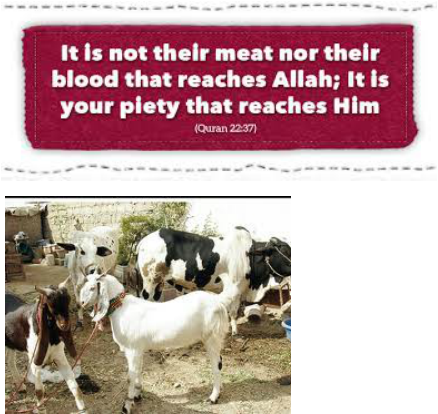 Qurbani is the graceful act every Muslim man and woman wants to perform on 10th of Zil-Hijjah. It is indeed pleasurable to know that the act of Qurbani is’farz’ upon every man and woman. Apart from this, Muslim can also perform Qurbani from behalf of their deceased parents. It will help in deletion of their sins before the emergence of the Day of Judgment when they would appear to be accountable in front of Allah (S.W.T.). Usually sadiqah-e-jariah, contribution in charity, recitation of the Quranic verses and ayaats are the acts one individual Muslim can perform so that his/her deceased father or mother would get benefit (Sawaab). But we are thankful to Allah (S.W.T.) that He made the instructions for Qurbani flexible enough that both alive and dead Muslims would earn Ajar-o-Sawaab by slaughtering their bought Halal animal to fulfill the purpose the Qurbani. Muslim son can carry out Qurbani on behalf of his expired parents. Muslim woman would have to follow the same instructions. If she is married then she has to ask his husband so that his husband would carry out Qurbani for her deceased parents. If he doesn’t allow her then she couldn’t perform this act. But if is single or married and she earns money, if she wants to perform Sunnat-e-Ibrahimi for her parents then she is allowed to do so. Among the months of Islamic calendar, the last month of Zil-Hijja is the most blessed of them. It is advised to recite specific aurado-wazaif and to offer ‘Nafl’ Namaz from the 1st of Zil-Hijja till 13th of the month. This should be kept in mind that ‘Fariza-e-Qurbani’ is only applicable to those Muslim brothers and sisters who have gone through the stage of Puberty. It is especially advised to the Muslim Ummah to follow this act if they want their deceased beloved to receive bestowed blessings from Allah (S.W.T.) wherever they are after they had played their roles upon the stage of the world. Our beloved Prophet whom we also call as ‘Companion of Allah (S.W.T.)’ AND Hazrat Ismail has done a great of kindness towards humanity and Muslim Ummah. Source by Pak Qurbani.
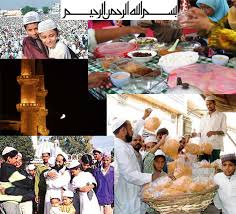 Muslims who perform Sunnat-e-Ibrahimi are fortunate people because they slaughter qurbani animal in order to please Allah Almighty and prove Him that He is the mighty over all of us. We perform the ritual of qurbani in the memory of our beloved Prophet Hazrat Ibrahim (A.S.) and Hazrat Ismail (A.S.) They happily had done whatever they were asked to perform by Allah Almighty. Qurbani can be both performed by Muslim men and women. The deed of qurbani is ‘farz’ upon ‘baligh’ Muslim man and woman. If they can afford goat, cow, sheep, buffalo, camel or other qurbani animal they are most welcome to do Sunnat-e-Ibrahimi. Women are always questioned about performing their deed of qurbani. Yes, they can also fulfill the act of qurbani. The second question comes in our mind is that are they allowed to do revise the ritual of qurbani in halat-e-haidh(monthly bleeding from uterus) and halet-e-nafaas (bleeding after the birth of her baby)? The question has been brought to light by several Muslim women because generally they aren’t allowed to offer namaz (Salat), they can’t fast in month of Ramadan, they can’t offer pilgrimage in Kaaba and also they aren’t allowed to recite or read Holy Quran but they can verbally read or recite it. Allah has bestowed His blessing upon His every creation verily it is the human who always do bad with his/her self. Allah (S.W.T) has also allowed women in halat-e-haiz or in halat-e-nafaas to slaughter their bought qurbani animal. If a Muslim is capable enough then Allah would be pleased by him when he carries out qurbani on behalf of his zooja (wife) who is alive nurturing his kids, looking after his house and living with him under one roof. Muslim Women are also allowed to act upon the ritual of qurbani normally. All Sharia-qurbani laws are applicable to them surely. Women can perform the qurbani on the behalf of their deceased grandparents, parents and spouses. It is also a fact that Muslim can also dedicate his qurbani to our most adored Prophet Hazrat Muhammad (P.B.U.H). Allah (S.W.T.) has provided us with Deen-e-Kamil. Every commandment and instruction scripted in Quran Shareef by Allah has logical basis, as we believe in His sovereignty we can’t deny any of His prescribed instruction to act upon. This Hidayah for Muslim sisters Qurbani article is provided by http://www.pakqurbani.com/, we have started our service to donate qurbani online in needy people and charity.
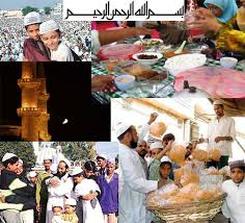 Bakra Eid, it fills our mouth with water as our tongues starts craving for delicious meals and barbeques. It is such a pleasure to have Bakra Eid being celebrated yearly. The occasion testifies our relationship with Allah Almighty that He is the mighty who has supreme authority over the entire universe and we are indebted to execute His asked deeds. We practice shariah Qurbani in remembrance of Hazrat Ibrahim (A.S.) and Hazrat Ismail (A.S.) who heartly fulfilled the order of Allah Almighty. Allah asked Hazrat Ibrahim (A.S.) in his dream to slaughter his son for the sake of Allah. He discussed his dream with his son Hazrat Ismail (A.S.) he delighted agreed to abandon his life as Allah (S.W.T) has asked his father to do so. When Hazrat Ibrahim (A.S.) was about to slaughter Hazart Ismail (A.S.), he was replaced by a sheep it was brought by Hazrat Jibrail (A.S.) from Jannah. Then Allah said to Hazrat Ibrahim that He put him in this challenge to seek out his preference for his son over Allah. Hazrat Ibraim (A.S.) won over the challenge successful. He proved himself as pious human being of Allah. He proves that none is superior to Allah. So this great act of Qurbani was made compulsory ‘Fariza’ for Hajj. Hajj isn’t completed without it. Those Muslims who aren’t performing Hajj are also asked to do Qurbani, it is ‘Farz’ upon Muslims who are wealthier and they are capable to slaughter healthy Halal animal with proper method as prescribed in the Quran and in accordance with the preaching’s of our dearly-loved Prophet Hazrat Muhammad (S.A..W.). Muslim can also perform Qurbani on behalf of their deceased grandparents, parents and spouse. It is the biggest celebration of Islamic calendar. Children especially enjoy the event. Qurbani meat is distributed among poor people and relatives. The rest meat belongs to us which we cook and can have heavenly tasty feast. Islam is the religion of equality; we have to think about our poor Muslim brothers and sisters we have to make sure that they take pleasure in the event of Bakra Eid also. They come first before us because they don’t eat meat round the year to fulfill their right is our first priority. I feel proud to be a Muslim. Islam is a wonderful religion where none remains unprivileged as Islam itself is the biggest bounty of Allah to His followers. Source by Pak Qurbani.
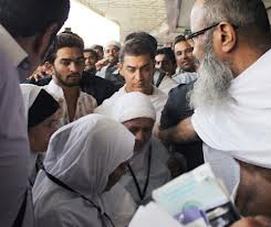 Qurbani is obligatory on every Muslim regardless of their gender be it male or female they have to perform this sacred act in order to prove of their submission to ALLAH’s will and command. Everyone has to pay for their qurbani animal if they have reached puberty. However, it is the husband or father who can pay for their wife and children (not reached puberty) respectively. If wife doesn’t have the required amount i.e. 613.35 grams of silver or any kind of wealth which is equivalent to it then it affirms that she is solely dependent on his husband for her maintenance and thus husband should pay for her wife’s qurbani. Similarly, it is with the children who are still looked after by their parents i.e. they are dependent but have reached the age of puberty then also father can perform the same role aforementioned for the husband. Father or husband, if they both can afford the expense of another qurbani other than their own, can perform this act on behalf of the dependent wife and his children. For this he will be definitely rewarded as it is his right to safeguard and take responsibility of them all. Similar would be the case with the couple at Hajj where it is also permissible while performing qurbani that if wife is sahib-e-nisaab i.e. She is wealthy enough to pay for her qurbani animal then she should do so. Otherwise it will not be wrong if asks of her husband to perform qurbani on her behalf as well. It is thus concluded that qurbani cannot be neglected in any case except the conditions which make the laws lenient and easy-going when a Muslim cannot perform qurbani or when he wants to perform but is unaware of the rules that are to be followed prerequisite to qurbani at Hajj or simply at his own place. Resource by Pak Qurbani.
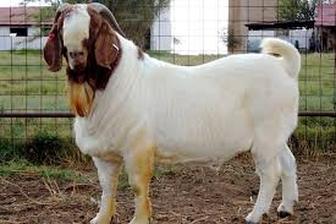 Sharing does not means to distribute your share of the animal’s meat with others, it also has a meaning that throws light on the share of the animal that is to be sacrificed and apportioned among people. Nowadays people cannot afford to purchase qurbani animal which is very expensive for the ones who want to follow this Sunnah but financial problems hinder their wish to be fulfilled as to please ALLAH Almighty. From the sunnah we are taught how an animal can be shared by many. Sheep, goat or ram constitutes just one share i.e no other person can add his share of money in buying it. However, for cow and camel it is seven people who can contribute and thus perform qurbani at the occasion of Eid-ul-Adha. This method of adding one’s share in the animal which is to be slaughtered, benefits all from it whether some of them did not had the intention of qurbani and only wanted a share from the sacrificial animal’s meat. From many resources it has been traced down that in a sheep, goat or lamb our beloved Prophet Muhammad is not found to had let two people sharing one animal. Nevertheless, animals i.e cow and camel can permissibly uphold seven shares at a time. The seven members can be of the same family or else others can also be facilitated by this way in performing this sacred act as to commemorate Hazrat Ibrahim’s sacrifice of his most precious possession. It is a really great thing for people who in their hearts know of the importance and the reward that is promised by ALLAH when one sacrifices animal solely as to prove of his love and submission of will to HIM. Therefore, sharing in sacrifice is permissible and each one is opportune to perform qurbani by willingly and the budget that allows them to purchase an animal for this holy event. This sharing qurbani article is provided by Pakqurbani.com, we have started our service to donate qurbani online in needy people and charity.
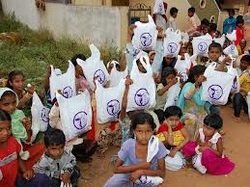 The qurbani which is most famous and popular among the rest is the slaughter of animal at the occasion of Eid-ul-Adha. However, there are other qurbani types too i.e Sadqa and Aqueeqa. Sadqa Sadqa is given as to save the person from any calamity which can harm him or take away his/her life. In it animal or even some part of its meat can be distributed among the ones who are particularly nominated to be the ones who can eat the meat distributed as to fulfill the conventions for sadqa. aqueeqa On the other hand it is aqueeqa which is related to the new born child who is a blessing from ALLAH Almighty and thus Aqeeqa has to be performed as to free the Chile from impurities. It is also said that it makes the child obedient to his parents or inhibits the troubles or hardships that he will have to bear or pass through in his life. It has many explanations stated by great religious scholars. Most effectively it had been performed by our beloved Prophet Muhammad (P.B.U.H) on the birth of his grandsons Hassan and Hussain. It is actually the removal or shaving off the newborn’s head and distributing meat of an animal which is as elucidated by our Last Prophet. Hazrat Aisha (R.A) narrates that "The Holy Prophet Sallallahu Alaihi Wasallam instructed us to sacrifice two goats in favor of a boy and one goat in favor of a girl."(TIRMIDHI). It is advised to perform the act of shaving off the child on the 7th day after his birth which can be simplified by putting it this way that if the child was born on Monday then on Sunday Aqueeqa is to be performed. And if it was Tuesday then Monday will be the day on which by name of the child the animal be it a sheep or goat which is healthy and qualifies for qurbani, it should not be weak or sick, and must be one year old or looks healthy enough to be sacrificed as passing off to be one year old. Thus Aqueeqa if not possible for the guardians or the ones who will be responsible to look after the child are not to take loan or ask someone else to pay for his/her Aqueeqa. If they can then they should follow what our religion teaches and demands to perform specifically on the seventh day after the child opens his eyes in the real world around him.Source by onlinequrbanidonation
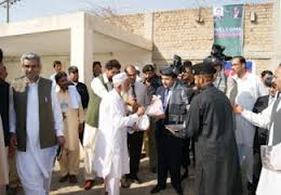 Qurbani is a sacrifice that is offered at the time of Eid-ul-Adha to show gratitude towards Allah and to provide for the poor and needy. Qurbani is a practice commanded by Almighty Allah (Quran 108:2): 'So turn in prayer towards your Lord and sacrifice (animals).' The above mentioned verse signifies that along with praying five times a day to the one and only Allah it is also mandatory if you meet the conditions set by Shariah to sacrifice a domestic animal on Eid-ul-Adha. There is no action dearer to Allah during Eid-ul-Adha than the sacrificing of animals. Therefore sacrifice with an open and happy heart. Hazrat Muhammad [pbuh] explains Qurbani as the Sunnah (practice) of Hazrat Ibrahim [pbuh] and the person who sacrifices is reward for every hair or every fiber of the wool of the sacrificed animal. When a person slaughters a Qurbani animal, he is forgiven at the fall of the first drop of blood, and verily, the animal shall be brought forward on the Day of judgment with its blood, meat etc, and shall be increased in weight seventy times more than its own weight, and thereafter it will be placed on the scale of deeds. Regarding virtues of Qurbani Allah further mentions in Qur'an 22:37 that "It is neither their flesh nor their blood that reaches Allah; it is your piety that reaches Him." Thus devotion is important during sacrifice. Allah does not require the flesh, blood or meat of the sacrificed animal. It is our intentions that are accounted for when we sacrifice. Thus those who sacrifice should do it with a pure heart, free of malice and with the right intentions. The virtues of Qurbani are not only limited to spiritual benefits but physical benefits are also there. The organ of the sacrificed animal that you eat strengthens your own organs. Personal experience tells us that meat from the sacrificed animal is much healthier than the meat eaten on any ordinary day. You receive the blessings of the poor and needy when you distribute their share of the meat. While distribution among family and friends increases your bond towards them. Pak Qurbani Provided this article to spread Islamic knowledge about Qurbani.
 The Significance of Division of Meat on Eid-ul-Adha With the last month of the Islamic month comes one of the two holiest events that are Hajj and Eid-ul-Adha. The auspicious occasion of Eid-ul-Adha is synonyms with the meat of cows, bulls and other sacrificial animals in Pakistan. As the slaughter of animals in such a huge quantity is done, the abundance of meat is obvious. Most of the meat is distributed among the poor and needy people who can’t afford the meat during any part of the year because of the exorbitant prices across the country. People from all walks of life and regardless of their social status and class participate whole heartedly in distributing meat to the poor people. The meat is divided among the needy people chiefly by wealthy and affluent people in their homes as dozens of sacrificial animals are slaughtered there. They distribute meat in large quantities and no one leaves empty handed from their houses. Role of NGOs in Division of Meat There are several Non Governmental Organizations (NGOs) all over the country which helps too in distribution and division of meat in a systematic form. They achieve this feat through donations which they collect from Pakistan and from people who send their donation from all over the world. Pakistanis residing in the Gulf countries, U.K and the USA send the bulk of amount. Even after the animals are sacrificed, the skins of these animals are a vital source of income for these NGOs as well as many local mosques, religious institute, etc collecting these from people to sell them to factories who convert it into leather. The Responsibility of Government All the distribution and division of meat from Qurbani is done from the private sector and from the ordinary people on their own. There is no mechanism from the government side to facilitate the poor and needy people so that they can also celebrate this festive occasion with joy. Even there is no checking mechanism from the government regarding the prices of the animals that are bought by people for the purpose of sacrifice. This is also a big factor why many people who otherwise will also take part in the process of sacrifice are left with no choice but to rely on the meat distributed by affluent and wealthy people. So it is clear from the discussion above that the division of meat is not done in a systematic manner and so this entails a clear message that this should be done so that the poor and needy people would also enjoy this occasion.
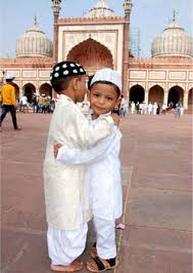 The Pros and Cons of Qurbani in Pakistan 10th Zil-Hajj of Islamic calendar marks the auspicious occasion of Eid-ul-Adha all over the muslim world. It is an even of great religious fervor and jubilation. In Pakistan Baqr Eid, as some call it, is celebrated with huge excitement. The preparations for the festive occasion starts well in advance with the animals for sacrifice being the star attraction. People of all ages, mostly children wait anxiously for this event all year as they enjoy it the most. As mentioned above, the animals for sacrifice especially cows, bulls and goats are bought by people to perform the sacrificial act is offered to God in the remembrance of Hazrat Ibrahim A.S who tried to sacrifice his son to Allah. The meat is largely distributed among the relatives and needy people who can’t afford to buy or eat meat during the whole year. Temporary cattle markets are setup across the length and breadth of the country from where the people buy goats, sheep, cows, camels, etc to sacrifice. This business is a major source of income for many industries, for example, the skin of animals are used in the leather industry for making shoes and other items related to leather. The Season for Children to Rejoice For at least 10 days or so, there is a festive environment all over the country. The animals for sacrifice are decorated and kept with great care. Children especially enjoy these days with taking care of those animals and take them for a ride and making sure they eat a lot of food and drink water so that they remain fit and healthy right till the day of sacrifice. The Adverse Aspects of Qurbani in Pakistan But there is a downside amid all the fun and festive mood. People tend to block the streets and even main thoroughfares that cause much nuisance and hardship to people who use these to commute. This is mainly done in the name of security but there is no justification for causing trouble to other peoples for your sake. Another negative aspect is the litter and waste that spreads all over the area where the animals are kept. This is perhaps lack of common sense and care for the other people which cause these hardships for others. And once the sacrificial act is done, there is more garbage on the streets and everywhere in Pakistan. The leftovers of animals after they are slaughtered are dumped onto the streets and open areas making the whole area polluted with pungent smell prevailing for many days. But people do bear these one or two negative aspects as this a religious obligation for every muslim to sacrifice animals if he has enough disposable money.
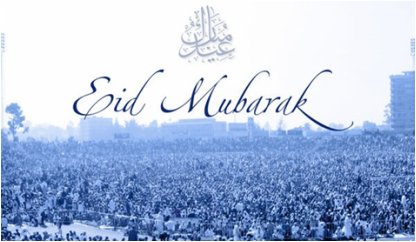 Eid-ul-Adha (also popularly known as the Festival of Sacrifice) is a time of remembrance of the trials of Prophet Ibrahim [pbuh]. These annual three-day celebration marks the historical events that took place thousands of years ago during the time of Prophet Ibrahim [pbuh] while laying the foundation for Hajj and Qurbani.
· As commanded by Allah Prophet Ibrahim [pbuh] escorted his wife, Hajar, and his infant son Ismail [pbuh], to a deserted valley in Arabia and left them there. Hajar, concerned about feeding her baby, began searching the surroundings for food and water. She saw a water spring around Marwah hill from the distance. But by the time she got there, there was no water. Again, she saw a water spring around Safa hill, but by the time she got there, there was no water either. This act of Hajar running from Safa to Marwah back and forth for 7 times, is one of the main rituals of Hajj which pilgrims have to perform and is called Sa’i.
· Finally tired she collapsed beside Ismail and prayed to ALLAH. Ismail struck his foot on the ground causing a spring of water to gush forth from the earth. The spring which miraculously gushed forth at Ismail's feet never stops gushing and continuously gushing for thousands of years up to now, called Zamzam. During Hajj Muslims drink from the same well.
· Ibrahim [pbuh] returned to Mecca after ten years to meet his wife and son Ismail [pbuh]. This reunion was followed by a divine dream where he saw himself sacrificing his son Ismail [pbuh] for Allah's sake. When he told this to Ismail [pbuh], he immediately asked his father to carry out Allah's commands. But miraculously, when Ibrahim was about to sacrifice Ismail, Allah replaced him with a lamb. The sacrifice of an animal (also properly known as Qurbani) in Mina during Hajj and by Muslims around the world is a mark of this deed.
· Allah further instructed Ibrahim [pbuh] and Ismail [pbuh] to raise the foundations of Kaaba, an empty cube shaped building, the most sacred Muslim shrine, which the Muslims face during their prayers (Salat). Tawaf (circling of Kaaba) is one of the main rituals of Hajj. Then after circling the Kaaba, a Muslim prays behind the stone on which Ibrahim stood to build the Kaaba.
· The last ritual of Hajj, the stoning of the stone pillars at Mina exemplifies Ibrahim and Ismail’s rejection of satanic temptations to prevent them from carrying out Allah’s command.
This content is source by Squidoo
|










 RSS Feed
RSS Feed